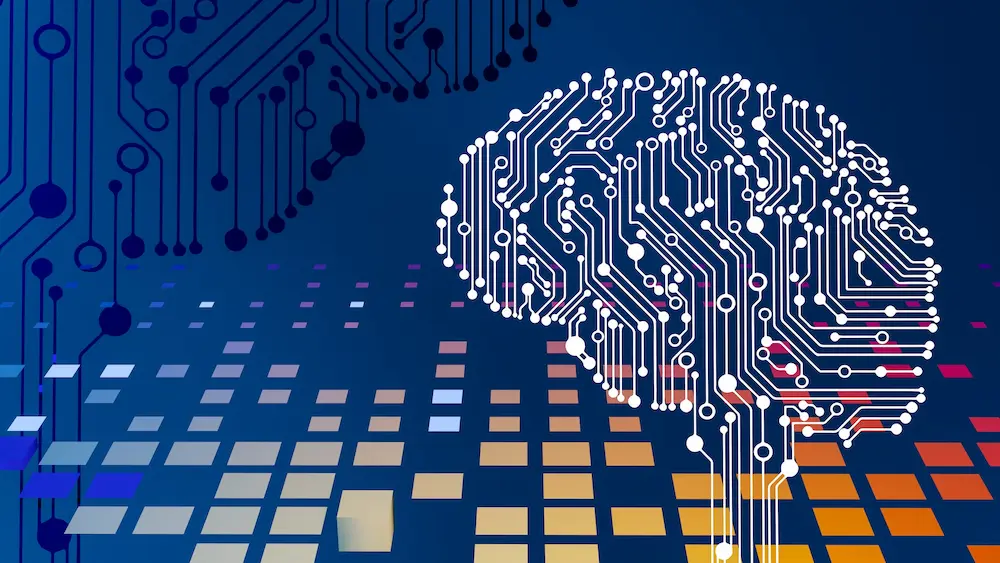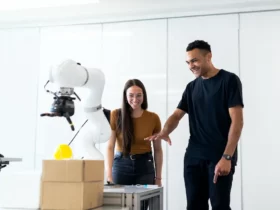As artificial intelligence (AI) weaves its digital tendrils into the fabric of our daily lives, it’s reshaping landscapes once thought impervious to technological shifts. Industries from healthcare to finance, transportation to entertainment, find themselves at the precipice of an AI-led revolution, redefining norms, and reinventing standards. In this intriguing interplay of science and creativity, we delve into the myriad ways AI is transforming our world. When you learn about the sheer scale of its influence, you’ll see why it’s considered a veritable game-changer.
The Healthcare Industry
The healthcare industry, traditionally reliant on the human touch, now sees AI as a trusted ally. AI-powered applications are diligently at work, assisting in diagnostics, predicting patient outcomes, customizing treatment plans, and even performing surgeries with robotic precision. This shift has opened avenues for personalized care, improved patient experiences, and significantly reduced errors that could have life-altering consequences. Such profound change indeed justifies the term “paradigm shift”.
In the same vein, AI is also playing a significant role in biomedical research. Through machine learning and data analysis, researchers can identify patterns and trends, leading to breakthroughs in drug discovery and disease treatment. Additionally, AI-driven virtual assistants are freeing up time for healthcare professionals by handling administrative tasks like scheduling appointments and managing records.
A Symphony of Innovation

In the realm of creativity and entertainment, artificial intelligence is breaking new ground with the advent of AI music generators. These sophisticated algorithms analyze patterns in music, from rhythm and melody to harmony and dynamics, and can compose entirely new pieces of music that are indistinguishable from those written by human composers. An AI music creator can even take inspiration from existing songs and use this knowledge to create unique compositions. This technology has already gained widespread acceptance in the music industry, with popular artists incorporating AI-generated elements into their work.
Moreover, AI-powered music recommendation systems are redefining the way we discover and listen to music. By analyzing user listening habits and preferences, these systems can serve up personalized playlists that cater to our tastes, introducing us to new artists and genres along the way.
A Technological Overhaul in the Financial Sector
From fraud detection and risk management to portfolio optimization and sentiment analysis, the applications of AI in finance are vast and varied. With AI’s ability to quickly analyze massive amounts of data, it has enhanced decision-making processes, leading to more accurate predictions and better risk management. AI has also enabled financial institutions to improve customer experiences through chatbots, personalized recommendations, and virtual assistants.
For example, chatbots allow customers to access information and complete transactions with ease, while virtual assistants can analyze customer data to provide tailored financial advice. Such advancements have not only improved efficiency but also fostered greater customer satisfaction.
The insurance industry is another sector in the financial world that has witnessed remarkable innovation driven by AI. Through the use of predictive modeling, data analysis, and natural language processing, AI has enabled accurate risk assessment and premium calculations. Consequently, this technological advancement has resulted in the provision of more tailored insurance policies for individuals, as well as enhanced fraud detection capabilities for insurers.
Transforming Transportation as We Know It
The transportation industry is another prime example of the transformative power of AI. With self-driving cars on the horizon and efficient traffic management systems already in place, we’re witnessing a rapid evolution in how we move people and goods. AI has made transportation safer, more convenient, and more sustainable by reducing accidents, optimizing routes, and minimizing fuel consumption. It also holds immense potential for streamlining logistics and supply chain management in the future.
A lot of these advancements are made possible by AI’s ability to process and analyze vast amounts of data in real time, making split-second decisions that humans may not be capable of. With ongoing developments and research, we can expect even more innovative use cases for AI in the transportation industry.
Revolutionizing Entertainment
With advanced algorithms and machine learning techniques, AI can analyze viewers’ preferences and behaviors to deliver tailor-made content that keeps them engaged. From streaming services to gaming, AI is constantly pushing the boundaries of what’s possible, creating new forms of entertainment and enhancing existing ones.
A lot of entertainment industries, such as film and television production, have also started incorporating AI into their processes. From generating realistic visual effects to automating tedious tasks, AI is revolutionizing the way we create content. Using a combination of AI and human creativity, we can expect to see even more groundbreaking forms of entertainment in the future.
A New Era of Learning

The adoption of AI in education has not only facilitated effective learning but also revolutionized teaching methodologies. Adaptive learning platforms, powered by AI, can personalize the learning experience, catering to the unique needs and pace of every student. These platforms can assess individual learning styles, identify areas for improvement, and adjust the curriculum accordingly, leading to a more engaging and productive learning experience. AI is also assisting teachers by automating administrative tasks such as grading and scheduling, allowing them to focus more on student interaction and instruction. As technology advances, we can foresee AI playing an instrumental role in democratizing education and providing equal learning opportunities to students worldwide.
Cultivating a Sustainable Future
AI’s impact is also being felt in the agricultural sector, where it’s helping to usher in a new era of sustainable farming. Through the use of AI-powered drones, farmers can monitor crop health, track livestock, and optimize irrigation systems, significantly improving farm productivity and reducing waste. AI-driven predictive analytics can also forecast crop yields and weather patterns, facilitating strategic planning and risk management. As the global population grows and the demand for food increases, AI’s contributions to agriculture will prove crucial in ensuring food security and sustainability.
Even more so, AI is also being used to address environmental challenges. With its ability to process vast amounts of data quickly, AI can analyze satellite imagery and sensor data to monitor pollution levels, track deforestation, and predict natural disasters. By providing real-time insights and alerts, AI can help us make better-informed decisions regarding our planet’s well-being.
As we navigate our collective future, it becomes increasingly apparent that artificial intelligence is not just an innovative tool or a disruptive technology. It is, in many ways, an architect of change, reshaping the contours of industries, redefining norms, and reconstructing the very fabric of our societal interactions. The versatility and transformative power of AI have opened up boundless opportunities across diverse sectors, from healthcare and education to finance and entertainment. Indeed, the AI revolution is here, not as a wave that will pass but as a seismic shift that will continue to impact our lives in profound ways. The role of AI as a game-changer across diverse industry landscapes is irrefutable; it’s a reality we are living in today and a future we are stepping into. As we continue to explore and harness this potential, we must foster responsible and ethical AI use to ensure a future that is sustainable, equitable, and inclusive for all.













